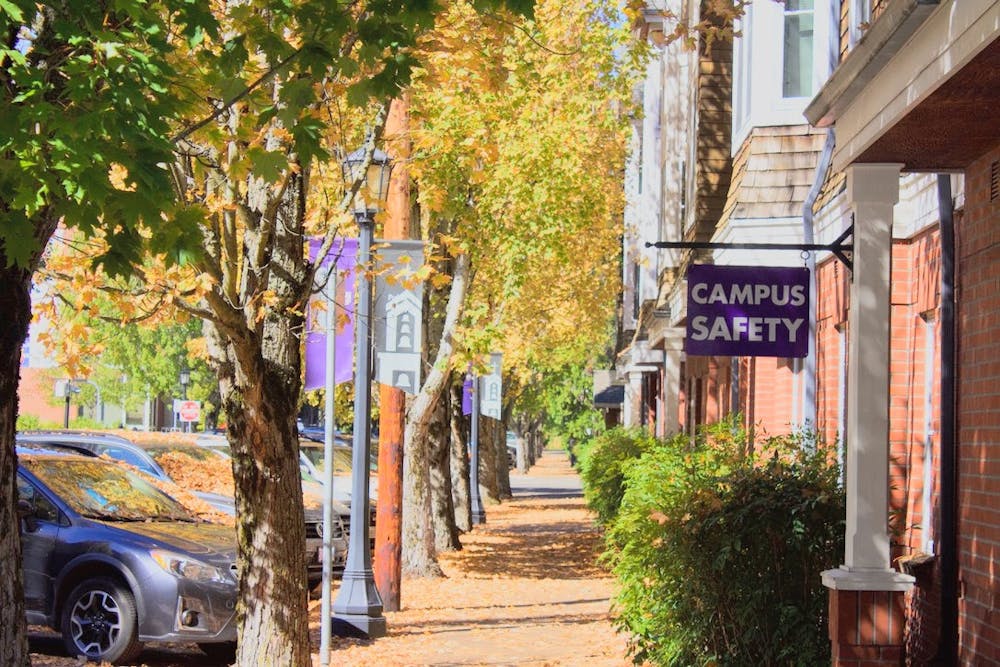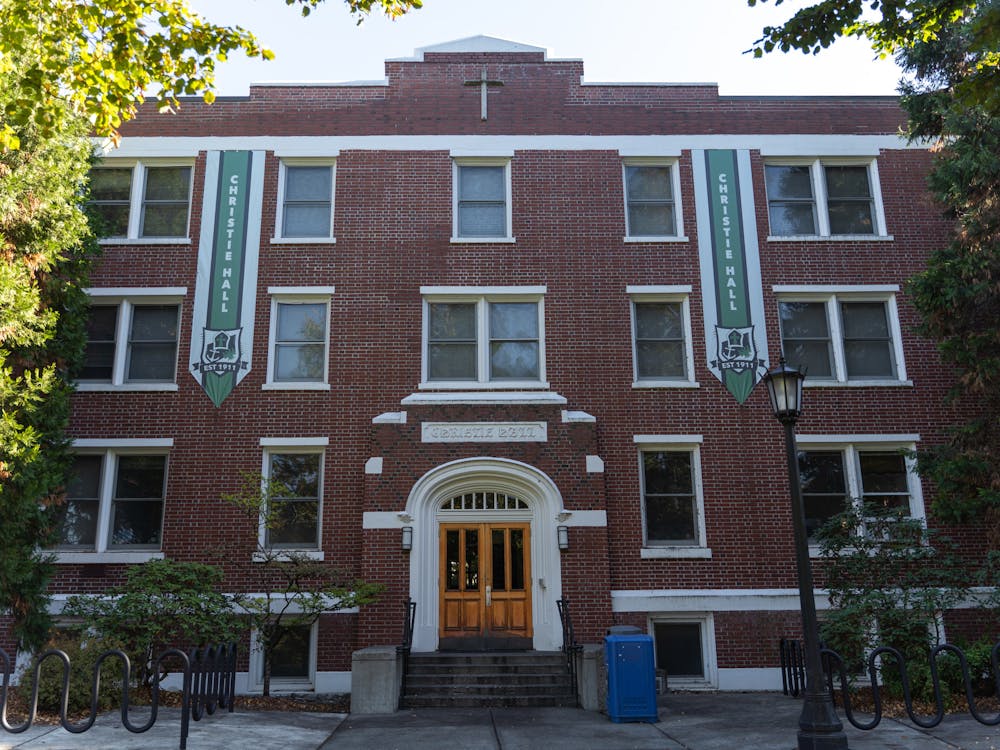Sophomore Grace Deke steps out of Mehling Hall eager to grab a meal off campus with her roommate. Pausing in bewilderment, she doesn’t see her Hyundai Elantra next to the baseball field where she had parked it the night before. After fifteen minutes of searching the area, Deke accepts her unfortunate reality — her car has been stolen.
“It was so sad,” Deke said. “They stole one of my squishmallows too. It was like a little penguin.”
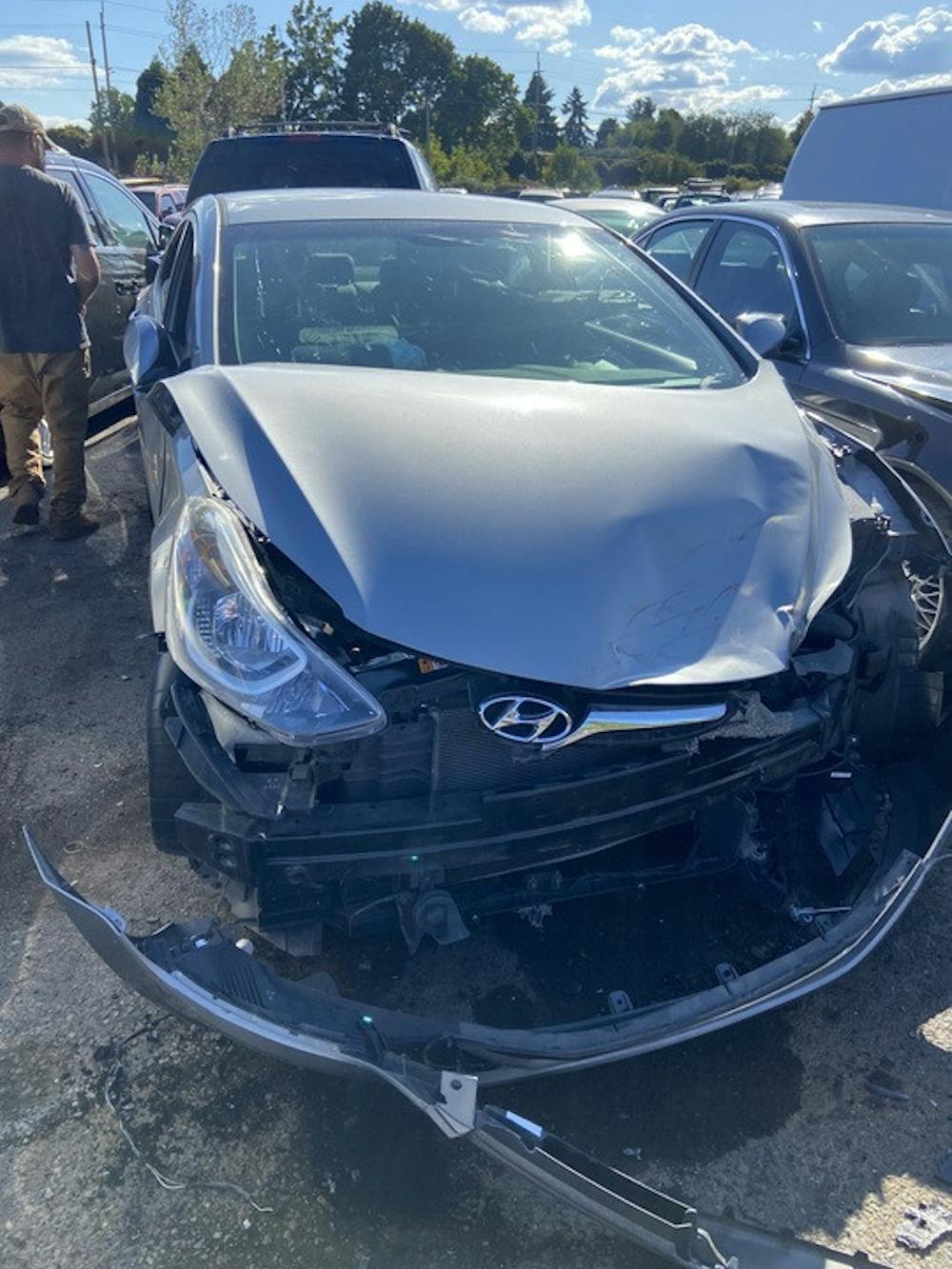
Image of Deke's Hyundai Elantra after it was stolen. Photo courtesy of Grace Deke.
Deke is one of the many students whose cars have been stolen from campus recently. According to the latest Crime and Safety Report for the University of Portland, 15 cars were reported stolen from campus in 2022. This is a significant increase from 2021, when there were no reported auto thefts from campus.
Furthermore, the report shows five cars were stolen from property immediately adjacent to campus in 2022.
Michael McNerney, director of Campus Safety, describes the uptick in auto thefts on this year’s Crime and Safety Report as highly unusual.
“We essentially tripled the number of vehicle thefts and that’s wild,” McNerney said. “Yeah, it is absolutely unheard of.”
The Crime and Safety Report is released every calendar year. All colleges and universities that receive federal funding are legally mandated by order of the Clery Act to submit their campus’ findings.
The annual report only includes crimes that meet determined criteria, specifically focusing on those that have been officially reported to Campus Safety officers.
Moreover, the report exclusively covers incidents that occur on University of Portland-owned property, encompassing the campus grounds, adjacent sidewalks, parking lots, UP-owned housing and any property under the ownership or control of a student organization. Private residences, including those rented by UP students, are not considered in this report.
The latest Crime and Safety Report includes statistics for the calendar years 2020, 2021 and 2022. The report reveals a marked increase in three categories: auto theft, sexual assaults and on-campus drug violations.
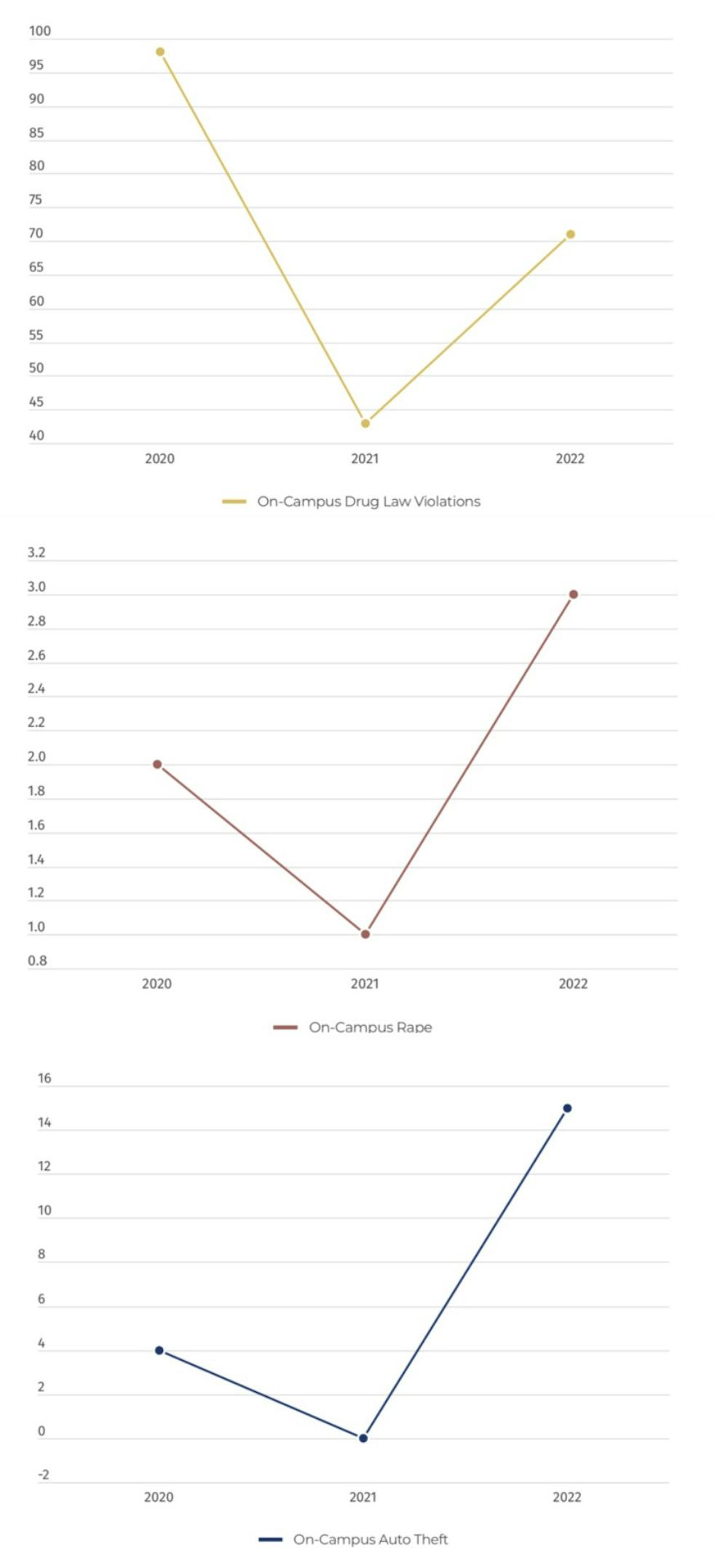
Due to the COVID-19 pandemic, UP's campus was not fully populated for the majority of 2020 and 2021. By any measure, however, the surge in auto theft on campus is unprecedented.
To combat the increase in on-campus vehicle theft, Campus Safety is prioritizing Crime Prevention Through Environmental Design (CPTED). This approach aims to reduce crime opportunities by emphasizing the design of physical spaces.
According to CPTED, "natural surveillance" is the primary method for deterring crime. This refers to the concept that an area with more people is less likely to be targeted by criminals.
Campus Safety currently has six officers working full time. Therefore, to increase natural surveillance on campus, Campus Safety plans to hire students as parking enforcement “officers.”
“The idea is to hire on some students to help with the parking enforcement. And then, their presence in the lots as they’re doing that enforcement will serve as a deterrent,” McNerney said. “Somebody who might want to steal a vehicle goes, ‘Oh man, there’s someone walking around looking at all the cars. If I take too long getting into this vehicle they might observe me and report me.’”
Campus Safety also plans to coordinate with Physical Plant to discuss ways to enhance the perceived ownership of areas on UP’s campus. Specifically, Physical Plant will focus on tending to and frequently visiting parts of UP’s campus that do not have a lot of foot traffic, such as River Campus.
“It makes the person who is up to no good a little bit more nervous about engaging in that behavior in this space because it is clear people do come here periodically,” McNerney said.
Another principle of CPTED involves maintaining clear sight lines on campus, ensuring that foliage such as trees and shrubbery does not obstruct visibility.
Campus Safety intends to collaborate with the Physical Plant department to ensure that all ground-cover plants and trees adhere to a specific height requirement, facilitating easy visualization of more remote areas.
“We’ve got some spaces on campus where we haven’t really applied that principle and it does create some blind spots that encourage negative activity,” McNerney said.
Beyond CPTED, Campus Safety is also relying on the advanced analytics of their Motorola security cameras to catch and report any unusual activity on campus.
“Those cameras kind of learn what normal activity is,” McNerney said. “Then when they see something that strikes them as out of the ordinary, then they would notify our dispatch center who could then send an officer over to investigate.”
The increase in auto thefts on UP's campus coincides with the surge in car thefts observed throughout the greater Portland area since the onset of the pandemic.
The Portland Police Bureau's Monthly Offense Statistics indicate there were 9,250 motor vehicle thefts in 2021, rising to 11,105 incidents in 2022.
Students in off-campus neighborhoods face a higher risk of car theft, as per the Portland Police Bureau's data.
In 2022, 92 cars were reported stolen from the University Park neighborhood. In the same year, 221 motor vehicles were reported stolen from the Overlook neighborhood.
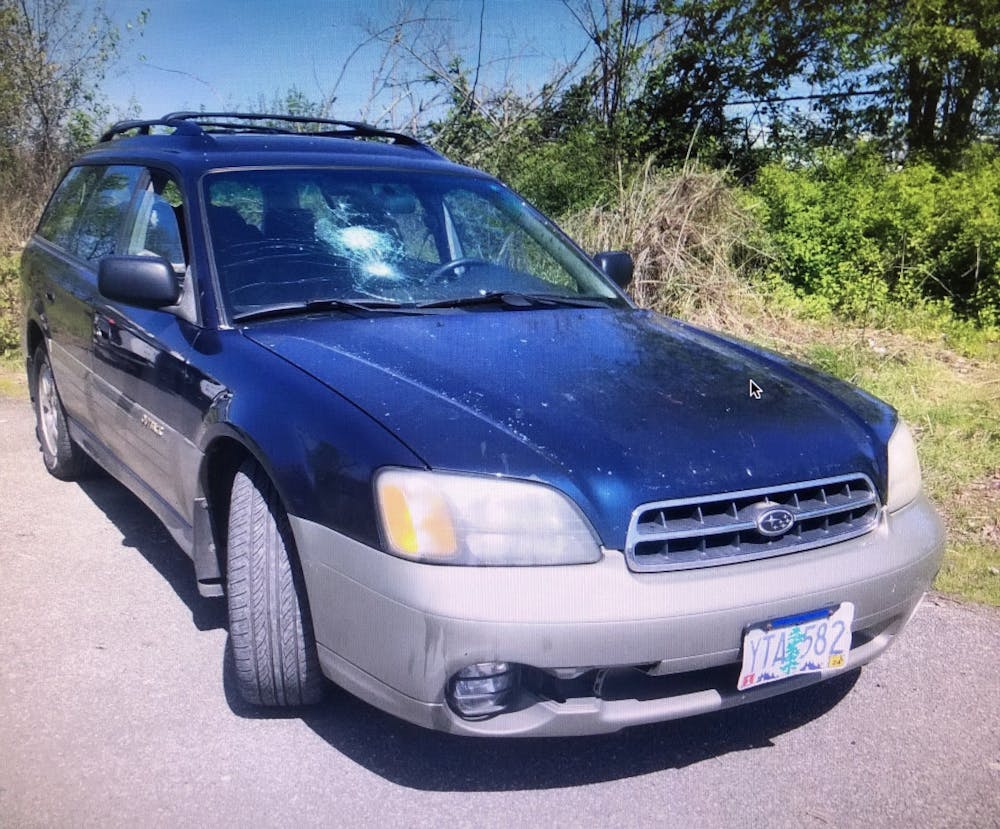
Tierney's Subaru after it was found wrecked on a bike path. Photo courtesy of Mia Tierney.
Last April, senior Mia Tierney’s Subaru was stolen from her house near Harvard and Fiske Avenue. Tierney went to check on her car on a Thursday morning only to discover that — like Deke’s — it was nowhere to be found.
“In that short period of time — I think it was stolen Wednesday night — and then by Thursday morning around 10 or 11 a.m. it had already been impounded because they found it wrecked on a bike path,” Tierney said. “It was more unsettling to know that the car had been stolen. I felt a lot of comfort knowing that I could get myself around the city.”
Although Campus Safety can’t control what happens off-campus, McNerney recommends that all students who own cars invest in a brake lock or steering wheel club to deter theft. McNerney believes that if someone sees that a person has taken great lengths to protect their car from theft, they are less likely to try and break into it.
“The goal is to increase, or essentially delay, the individual because the longer they have to spend taking the vehicle, the more likely they are to be noticed,” McNerney said.
Julianna Pedone is a reporter for The Beacon. She can be reached at pedone25@up.edu.



